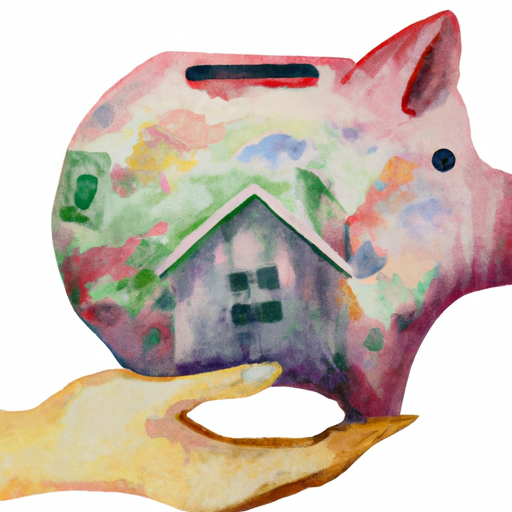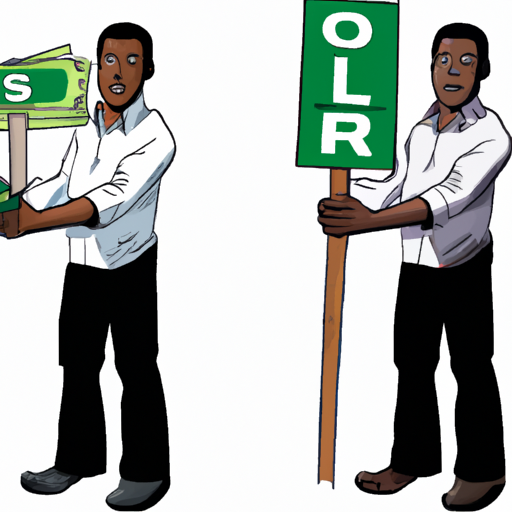This section provides an overview of the costs associated with selling a home, including real estate agent commissions and preparation costs. This emphasizes the need to plan and budget accordingly. It also discusses hidden costs such as home renovations and staging. The chapter explores the choice between selling DIY and hiring professionals, emphasizing the benefits of professional expertise. In addition, it offers five cost-saving strategies, including negotiating lower commission rates and considering FSBO options.
Selling a home can be an exciting but challenging process. There are many factors to consider, from finding the right buyer to negotiating the best price. One important aspect that is often overlooked is the resale value of the home. Whether you are a first-time seller or experienced in the real estate market, understanding the costs involved is essential to a successful sale. In this article, we’ll explore the various costs associated with selling a home, including fees, commissions, and hidden costs. We’ll also discuss the financial impact of DIY sales versus hiring professionals and share smart strategies to minimize costs. So, if you’re ready to dive into the world of home selling expenses, keep reading to make sure you’re prepared for the journey ahead.
- 1. Understanding the costs associated with selling your home
- 2. Cost calculation: fees and commissions in the process of selling housing
- 3. Hidden costs: Discovering additional costs when selling your home
- 4. DIY vs. Hiring a Professional: Weighing the Financial Impact of Selling Your Home
- 5. Saving money: smart strategies to minimize costs when selling your home
1. Understanding the costs associated with selling your home

When it comes to selling your home, it’s important to have a clear understanding of the costs involved. Selling a home can be an expensive process, and being aware of these costs can help you plan and budget accordingly.
One of the most significant costs when selling a home is the real estate agent’s commission. Typically, the seller is responsible for paying a commission that is a percentage of the final sale price. This commission can vary, but is usually around 5-6% of the sale price. For example, if your home sells for $300,000, you can expect to pay between $15,000 and $18,000 in commissions.
Other costs to consider are the costs of preparing your home for sale. This can include renovations, remodeling or staging to make your property more attractive to potential buyers. While these costs may vary depending on the condition of your home, it’s important to invest in necessary repairs and improvements to increase your chances of selling for a higher price.
2. Cost calculation: fees and commissions in the process of selling housing

When selling a home, it’s important to consider the various fees and commissions involved in the process. These costs can significantly affect the total amount of money the seller receives from the sale.
One of the most significant costs when selling a home is a real estate agent’s commission. Typically, this fee is a percentage of the final sale price and is paid to the agent representing the seller. The commission rate can vary, but it is usually around 5-6% of the sale price. For example, if a home sells for $300,000 and the commission rate is 6%, the seller will pay $18,000 in commissions.
In addition to the agent’s commission, there may be other fees associated with the home selling process. These may include listing fees, marketing costs and professional photography costs. These commissions may vary depending on the services and marketing strategies used by the real estate agent or agency.
Other costs to consider are closing costs. It
3. Hidden costs: Discovering additional costs when selling your home

Selling a home involves more than just the expected costs of real estate commissions, closing fees, and moving expenses. There are several hidden costs that sellers often overlook that can significantly affect their overall costs. It is important to be aware of these additional costs in order to avoid any surprises and to properly budget for a successful sale.
One of the most common hidden costs is home repairs and improvements. Before putting your home on the market, it’s important to make sure it’s in good condition and attractive to potential buyers. This may include repairs such as fixing leaky faucets, replacing broken windows, or repainting walls. These costs can add up quickly, especially if your home needs major renovations or repairs.
Another often overlooked expense is furnishing your home. Staging involves furnishing and decorating the property to make it more visually appealing and help potential buyers imagine living in the space. Hiring a professional handyman or renting furniture can be expensive, but it can greatly improve the overall presentation of your home and increase
4. DIY vs. Hiring a Professional: Weighing the Financial Impact of Selling Your Home

When it comes to selling your home, one of the first decisions you’ll have to make is whether to take the do-it-yourself approach or hire a professional to help you. While choosing the DIY method may seem more cost-effective, it’s important to weigh the financial implications before making a final decision.
By going the DIY route, you can save on commissions typically charged by real estate agents. These commissions can range from 5% to 6% of the final sale price, which can be a significant amount, especially for expensive properties. By managing the sales process yourself, you can potentially earn this amount.
However, it is very important to consider the knowledge and experience that real estate professionals offer. Selling a home involves complex legal and financial processes that may be unfamiliar to those without prior knowledge. Real estate agents can walk you through these ins and outs, helping you avoid costly mistakes. They have access to a lot of market data, which allows them to set correctly
5. Saving money: smart strategies to minimize costs when selling your home

Selling a home can be an expensive endeavor with various costs throughout the process. However, there are smart strategies you can employ to minimize these costs and maximize your profits. By being strategic and proactive, you can save money without compromising the quality of your sales. Here are five savings strategies to consider:
1. Research and compare estate agents. Hiring a real estate agent is an important step in selling your home, but their fees can make a big difference to your overall costs. Before you settle on an agent, do your research, find references, and compare commission rates. Look for agents who offer competitive rates without compromising their experience or marketing strategies. Negotiating a lower commission rate can save you a significant amount of money.
2. For Sale By Owner (FSBO) Options: If you have the time, resources, and knowledge of the real estate market, you may want to consider selling your home without an agent. FSBO allows you to completely save on agency fees, but requires
In summary, selling a home involves a number of costs that can significantly affect your overall financial outcome. Understanding the various fees and commissions involved in the home selling process is critical to accurately calculating value. In addition, there may be hidden costs such as repairs, staging and legal fees that must be taken into account. Deciding whether to take a do-it-yourself approach or hire a professional also plays an important role in the financial implications of selling your home. While DIY can save you money up front, it’s important to weigh the potential risks and benefits. Finally, implementing smart strategies, such as negotiating commissions and using cost-saving techniques, can help minimize costs when selling your home. By carefully considering and managing these costs, sellers can ensure a smoother and more financially profitable sales process.
 Purex find
Purex find